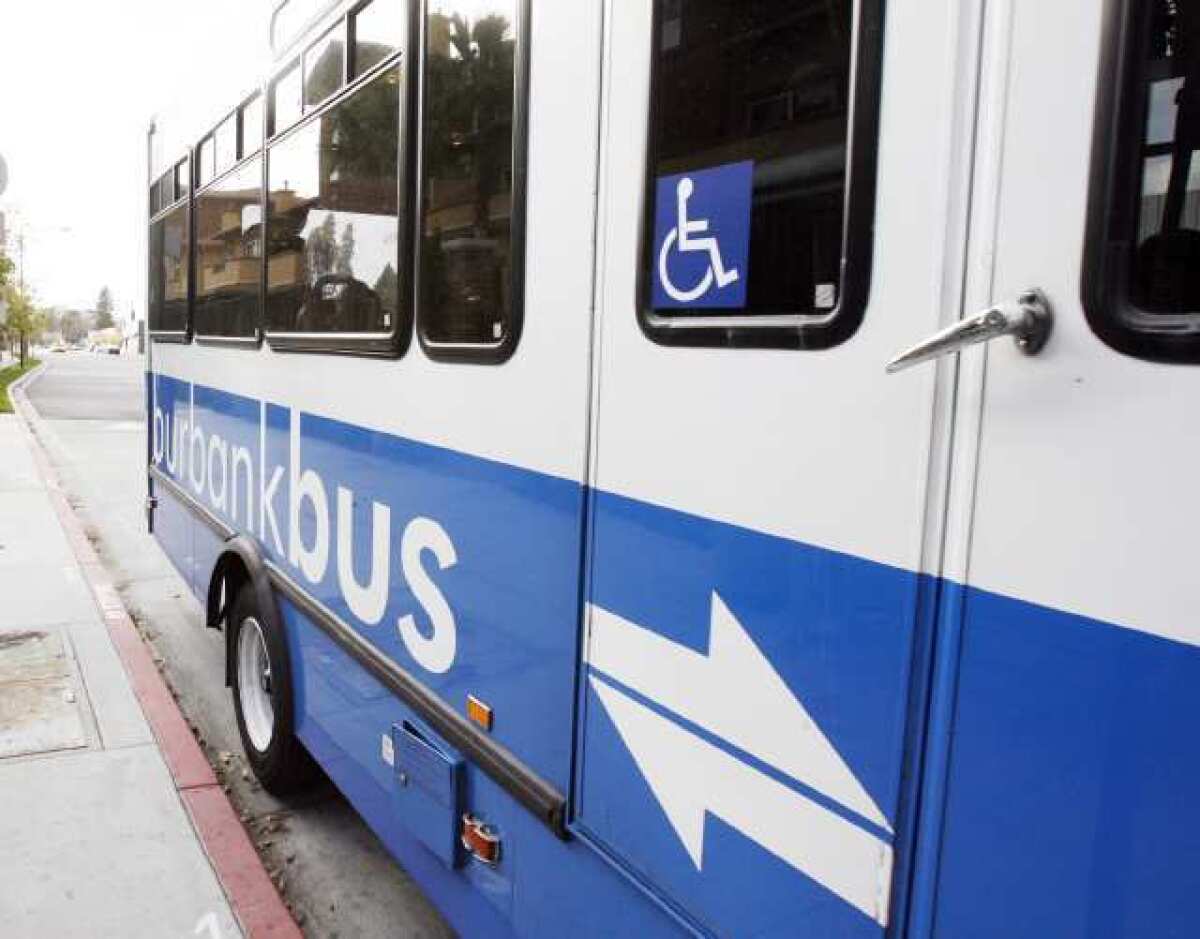Cuts loom for bus services

Transportation commissioners this week discussed the possibility of cutting bus service for seniors and the disabled on weekends, or perhaps confining the schedule to either Saturday or Sunday.
The options emerged Monday as commissioners continued looking for ways to make the service more efficient, bring in additional revenue or cut down on the schedule, moves under consideration because of dwindling financial reserves. Dipping into reserve funds has been necessary because the tax dollars that make up a significant portion of the revenue for the service have declined amid the weak economy.
BurbankBus Senior and Disabled Transit is a door-to-door service that runs daily, with appointments scheduled within the operating hours.
Buses generally run from Monday through Friday 7:15 a.m. to 5 p.m.; Saturday 8:15 a.m. to 6 p.m.; and Sunday 8:15 a.m. to 4 p.m.
Adam Emmer, transit services manager, said the high quality of service provided is the draw of the program, but noted it is also expensive to maintain.
Ridership is not diminishing, with more than 56,000 trips to date for the current fiscal year, he said.
“We’re on pace for an 85,000-ride level, in excess of the work goals for each year,” Emmer said.
From July to December 2011, about $7,400 in donations were collected. A 50-cent donation is requested of riders.
If the 50-cent donation were to be made mandatory, Emmer estimated, $24,000 could be brought in each year, assuming there was not a drop in ridership if the rule was instituted.
Commissioner Janet Diel cautioned against that option, saying the riders are often on fixed incomes and receiving housing and utility bill assistance.
“These are not the people going to Starbucks every day; they don’t have that luxury,” Diel said.
In fiscal year 2010-11, among the reasons riders said they used the service were: medical purposes, about 6% of trips; nutrition, an estimated 9%; and social outings, about 23%.
Reducing the operating hours or the number of buses, or both, also was discussed.
The option of keeping weekend hours but creating a mandatory weekend fare was another idea that was considered.
Commission Chairman Paul Dyson said his colleagues needed to make a recommendation to the City Council, since it is the council’s responsibility to examine how funds are spent.
Dyson said the commission should plan to examine bus advertising and the additional revenue it could bring, along with possible recommendations for cuts in service, at its next meeting.